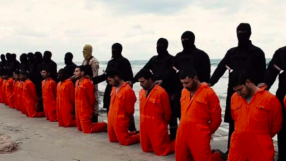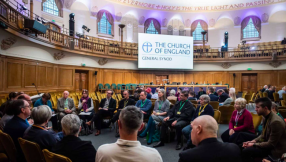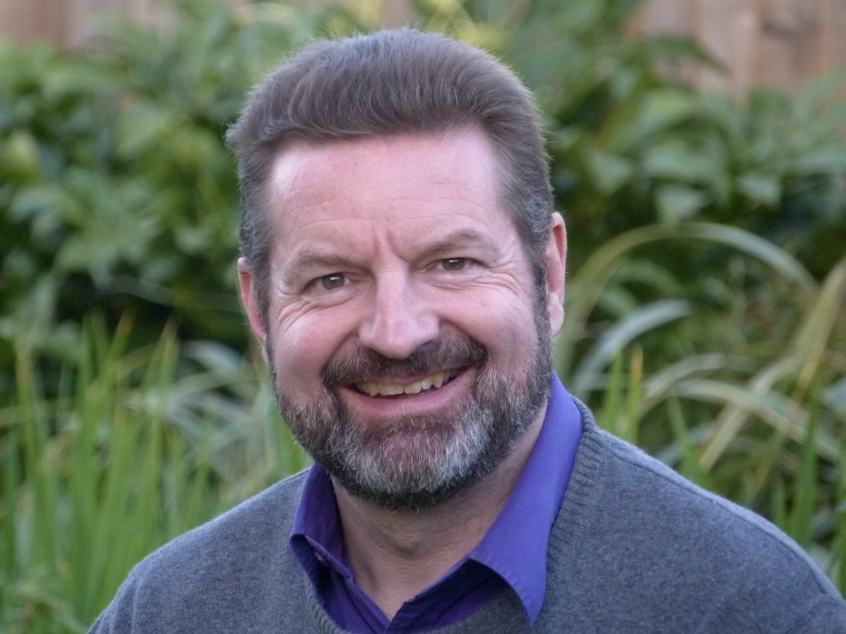
Last November, the Church of England published Living in Love and Faith (LLF), a set of resources about relationships, marriage, sexuality and identity.
While the LLF resources are the latest attempt by the Church of England to put an end to years of infighting over sexuality, they quickly exposed the scale of the rift, unleashing a war of words on Twitter in the first few weeks after their release.
For better or worse, LLF is set to underpin a year of discussions across the Church of England throughout 2020, to what end no one is really sure.
The Rev Dr Ian Paul, Anglican theologian, blogger and editor of Grove Books, speaks to Christian Today about LLF and where these discussions might lead.
CT: LLF was meant to bring people together but at least initially, it seemed to have the opposite effect and almost propel the Church of England into a war with itself. Do you think this has simply been a long time coming?
Ian: Not in the sense that this is something that has 'just arrived'. There have been struggles over this issue for a long time and whenever there is a new stage in Church of England discussions, the temperature is raised because suddenly something seems to be up for grabs and everyone is trying to get their bid in and gain the high ground.
It's important to note that the LLF is not really a process in theory but rather a set of teaching resources that arose out of an incident in Synod in 2017 where at the end of the Shared Conversations, the bishops issued a statement basically saying that they were not offering any prospect of change.
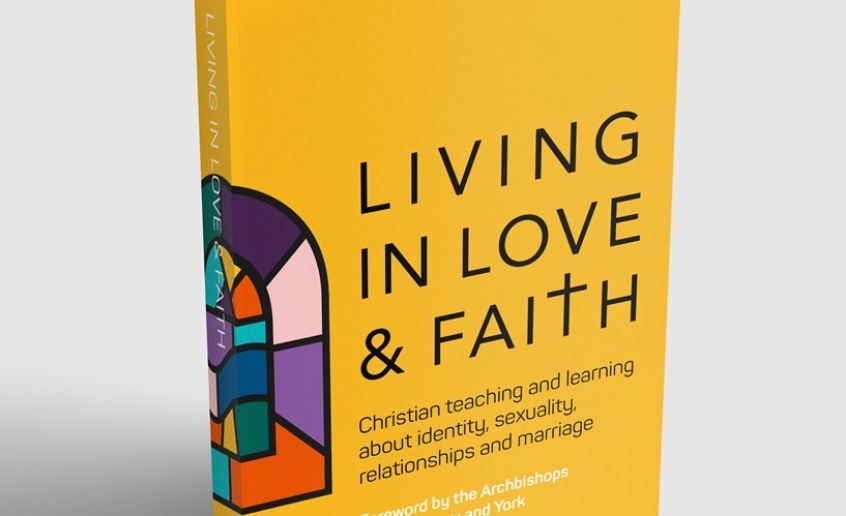
Synod voted not to take note of that report, effectively saying that they did not accept the current status quo or the statement from the bishops, and it was out of this incident that the Archbishops said "we need a radical new Christian inclusion in the Church" that "must be founded in scripture, in reason, in tradition, in theology".
I'm not convinced it was a very wise thing for the Archbishops to say, and progressives have lopped the last part of that statement off, which has caused all sorts of problems. But it prompted the bishops to say that a teaching document was needed and so LLF was born. A time of discussion and learning will follow, and it is hoped that by the end of this year, the Next Steps Group will bring some sort of process.
CT: The Church of England Evangelical Council and Christian Concern released videos after the release of the LLF resources that sparked some heated responses from LGBT campaigners. While the whole point of LLF is listening, do you think that this is possible given how quickly the debate soured?
Ian: I think that's the million dollar question but the videos are two quite different things.
I was involved with the CEEC one, which was deliberately released immediately after LLF to make clear that it wasn't a response to LLF. CEEC didn't want to release it immediately prior to LLF because it didn't want to be seen as preempting anything the LLF materials might have to offer but equally, it didn't want there to be a lapsed period that might give the impression that it was an LLF response, because it isn't.
It was intended as something quite separate and simply a way of giving those who do believe in the Church's current teaching some confidence so that there would be no sense for them that engaging in the LLF means that they have to suspend their commitment to their beliefs.
The question is: can we engage in the LLF process and hold onto our view that the current doctrine of the CofE is right, and this is not something we can simply negotiate away? Listening to someone who has a different view doesn't mean that you need to say 'I don't actually believe what I believe'. You can listen well and say 'I have thought this issue through, I'm really convinced in my own mind about what Scripture and CofE teaching says, I'm willing to listen to your view and understand it, but I'm not leaving my view at the door in order to do that'.
There are people on the other side of the debate who are uncompromising in their commitment to see change and who don't want to give up their views. That's fine, we don't have to do that in order to be committed to listening. I think that's a misapprehension and one that CEEC wanted to address in its video.
The Christian Concern video was very different in nature. It was a specific response to the materials in the LLF video. Everyone's entitled to their view and although it's been reported as hate speech, I don't think it actually is. Having said that, I don't think it was wise to quote bits of the video and then comment on them publicly in this way, because that was a direct response and it was a kind of 'closing down' of the discussion.
CT: Some LGBT activists who were a bit upset about Julian Henderson's comments in the CEEC video because he said that people with a traditional view of sexuality might have to reconsider their allegiance to the CofE and that there may need to be some kind of provincial solution to the dispute.
Ian: There is no sense in which he was saying that we shouldn't engage in the listening process. At the end of the video he says quite clearly that we should engage with LLF, but the point is that engaging with it doesn't mean that we agree at the beginning that this is a matter indifferent. In other words, if the teaching of Jesus and Scripture is relatively clear and does indeed prohibit some of the changes that some people want, then this isn't an issue that we can just agree to disagree about.
In reality, the whole of this issue is not really a discussion about different views on sexuality - we've known for years that we have different views on sexuality! The question really is: what is the status of those views? Can we come to some sort of accommodation as the CofE has tried to do on the status of women in leadership, where it acknowledges there is a dissenting view and we do actually have two views in the Church. Or is this like other teachings about Jesus, atonement or aspects of doctrine where Scripture is so clear that if we were to accommodate a range of views we would be saying both that we believe and do not believe in the teaching of Scripture and the Gospel of Jesus?
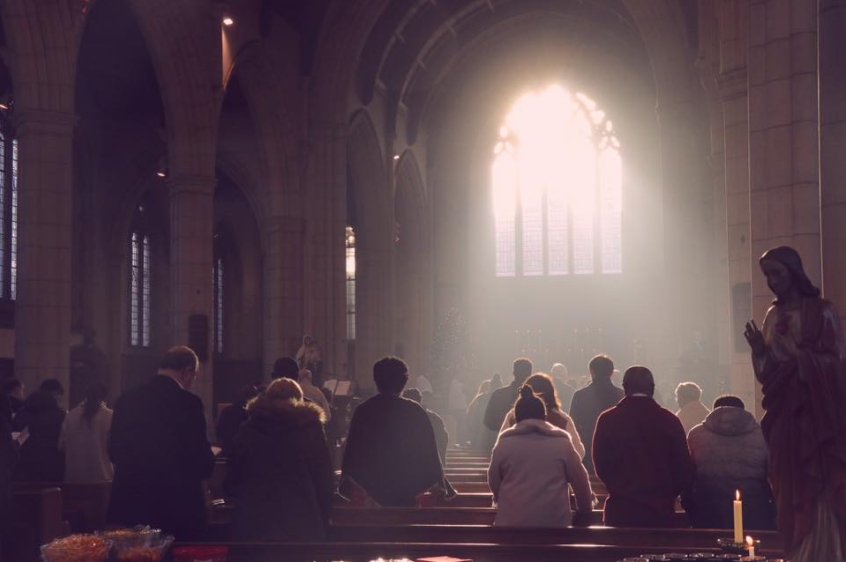
So the real debate is: what is the status of our disagreement, not what are the positions we disagree about. We know we disagree and the question is: how important is that disagreement? That's actually been the real discussion for the last 20 years and I don't think anyone is thinking that they are now suddenly going to persuade other people.
The Church of England has been at odds for many years over sexuality
CT: Why do you think there is so much disagreement over what Scripture says?
Ian: The reaction to the CEEC video has really highlighted what's at stake. In the video, I comment on how many scholars from a liberal point of view are happy to admit that the teaching of the New Testament is uncompromisingly opposed to the acceptance of same-sex sexual relationships. Jesus doesn't make much of it because he doesn't need to; he's following the standard Jewish rejection of same-sex relationships of the time, which Paul makes explicit in Romans 1 and 1 Corinthians 6:9.
The reason why it isn't mentioned very much in the New Testament is because the early Christian movement completely followed the Jewish absolute rejection of same-sex relationships in any form. In fact for diaspora Judaism, it was one of the key markers of difference between them and Gentiles. One historian has commented that Christianity's acceptance of that Jewish position was so absolute that it obliterated Greco-Roman attitudes to same-sex relationships by the time of the Constantian settlement. That indicates how total the rejection was.
The large majority of liberal scholars are happy to accept that this is what the text says and at the same time say that they think the teaching here is wrong. It's not difficult to find scholars like William Wilder or Douglas Campbell, a very well known Pauline scholar, who write clearly that Paul entirely rejects same-sex relationships while declaring that of course Paul is wrong! Walter Wink said he had no doubt that Scripture rejects same-sex relationships but that Scripture is mstaken! It's a very common view amongst liberal scholarship.
What I think is muddying the debate is half-baked arguments from people like Matthew Vine, author of God and the Gay Christian, who hasn't even got an undergraduate degree in theology. The things he says about Scripture just fly in the face of consensus in theological scholarship and I think that's one of the reasons why the conversation has become so muddied.
But there is a second issue. One friend of mine, an Anglican theologian, said that his objection to the CEEC video was the very opening statement by Jason Roach, who said that we're not innovators of doctrine but inheritors of it. In other words, the position of evangelicals in the CofE is that we have a deposit of faith; the truth about God is not something we invent as we go along. My theologian friend told me he didn't agree; that he believed doctrine develops and we can improvise.
So, the debate on sexuality is just a symptom of a wider difference of view in the CofE about the fundamental nature of doctrine. Do we innovate doctrinally or are we inheritors of a deposit of doctrinal faith? We may of course have new insights into doctrine and understand it more deeply as we go along or have to rearticulate it but I don't think that we necessarily 'innovate' it.
For instance, we may want to wrestle with the historic material around things like atonement or incarnation or the Trinity, but in the end do we or do we not believe that the truth about God is something that God reveals to us in Jesus, and that this revelation is encapsulated in the apostolic testimony that we call the Scriptures?
The big faultline in the CofE is actually around those fundamental questions concerning the nature of doctrine and Christian truth, what the Church's relationship to those is and what we find in Scripture.
That's why it has become so important to me. I don't think sexual ethics in and of themselves are a fundamental issue because sexuality is just one part of anthropology - what Scripture and doctrine say about being human in the light of the revelation of God. But the issue around whether we are inheritors or innovators cuts right to the heart of faith, and the sexuality debate is simply exposing that.
CT: Jayne Ozanne has called for a safeguarding inquiry and other LGBT campaigners have spoken about the evangelical view in safeguarding terms. Do you think the language of safeguarding is appropriate in this context?
Ian: No, it isn't. I think that those who want to see change are jumping on that particular bandwagon and inappropriately making use of safeguarding language. The identification they seem to be making is to say: if you say something that I don't agree with and find offensive, then you are causing me harm, and if you are causing me harm then the term for that is abuse, and if you are abusing me then that is a safeguarding issue.
But if you follow that logic then it means that no one is allowed to articulate anything that anyone might find offensive. What I find disturbing about that is that it trivialises actual safeguarding and abuse. And I think that in the long term, it is really going to backfire.
Jayne Ozanne has actually said that anyone who labels same-sex sexual relationships as sinful is guilty of abuse and therefore must be challenged about safeguarding. She has actually said this view must be silenced. That to me seems to be playing into the very worst aspects of our contemporary cancel culture, something that is highly damaging and will ultimately undermine the Christian faith.
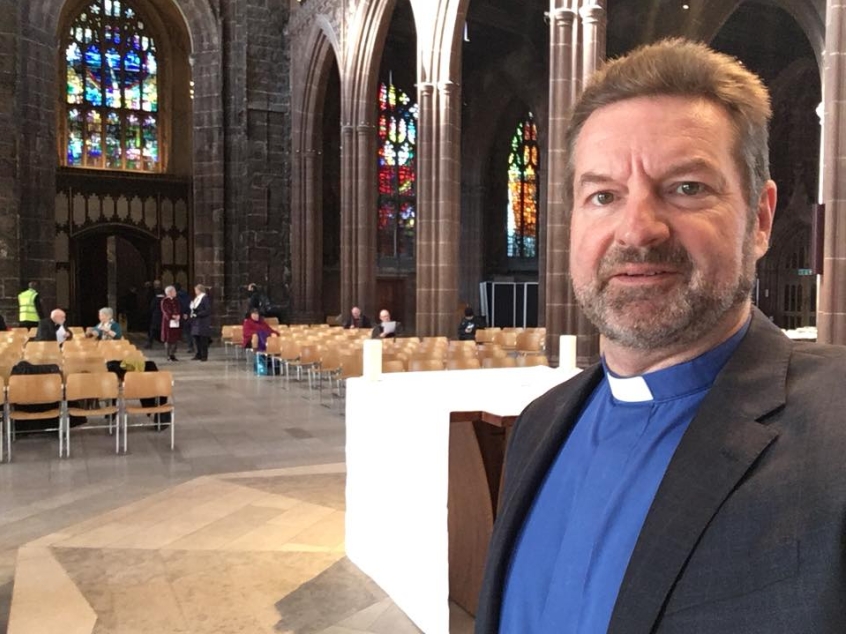
Because suppose an atheist says my claim to believe in God is offensive, and that they find it harmful and therefore abusive? We're heading down the path where no one will be allowed to make any claims that others might take offence at and where in particular no one's allowed to articulate the Christian faith in the public context. That is extremely damaging and harmful, and I suspect they may come to rue that.
The interesting question is: is my position on this issue more important than the Christian faith itself? For some people, it seems as if achieving change on this issue has become more important than our unity in Christ and our unity in the faith. In other words, this progressive version of the Christian faith seems to centre around this issue more than it centres around the person of Jesus. And that for me raises important questions. Is sexuality the thing around which we are gathered and united, or is the person of Jesus the thing around which we are united?
CT: If we look at what's happened in the US Episcopal Church (TEC) with the Bishop of Albany being disciplined for refusing to wed same-sex couples in his diocese - and ultimately resigning - do you think that this kind of scenario might play out in the Church of England in the future with a similar disciplinary process happening to evangelicals here?
Ian: Given that people are already employing the language of safeguarding and abuse, and saying that the 'traditional' view must be silenced, I can see why some people have looked across the pond and said 'oh look, this is where we're heading'. There's a danger of becoming paranoid about that - although there is also a saying that just because you're paranoid doesn't mean they aren't out to get you!
Having said that, I don't think that scenario is really likely in the Church in the UK, for a couple of reasons. One is that the culture here is quite different. The main difference which people don't realise is that the Church of England has never let go of its founding documents in the Book of Common Prayer and the 39 Articles. In TEC in the US, when they introduced their own Book of Common Prayer, that replaced the 1662 Book of Common Prayer. The Church of England has never done that; we've never replaced it. That's what makes the Church of England very different from the Anglican Church in the US, Canada and New Zealand, which have unhitched themselves from their historical moorings. We haven't done that.
Even the Alternative Service Book, as the name suggests, is strictly an alternative to the 1662 Book of Common Prayer. So, in law and in liturgy the Book of Common Prayer remains the touchstone for the doctrine of the Church of England, and in canon law the doctrine of the Church is defined as that which is found in the Book of Common Prayer and the 39 Articles.
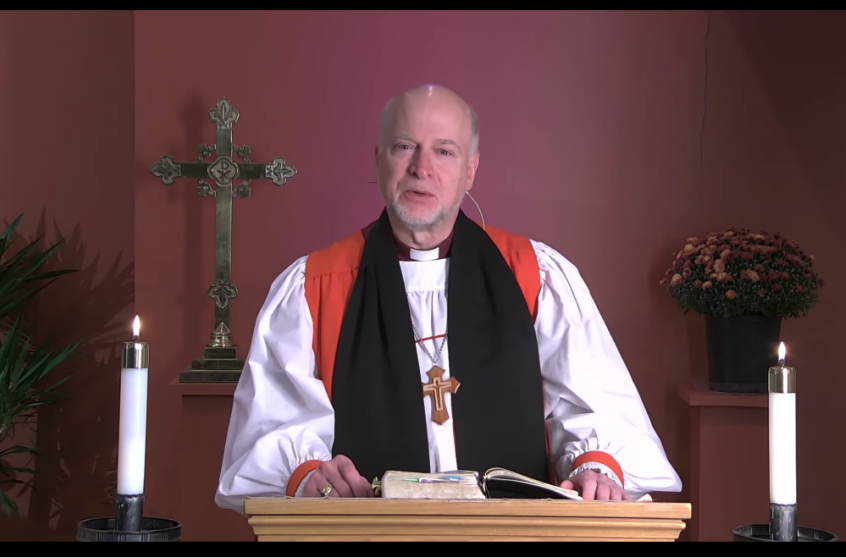
What that means is that if the Church of England were ever to consider formally changing its doctrine of marriage, it would not only have to change its current liturgy; it would also have to change its current canon law and redefine itself in relation to its founding documents, which it has never done before. If it did that, it wouldn't have very much of a future because that in itself would certainly divide the Church and you would have to ask the question: is the Church of England the Church of England anymore? I don't really see that this is possible because there would be so much to overturn.
CT: Where do you see the engagement process going and what kind of proposal do you think will be brought to the General Synod in 2022?
Ian: I don't have any real idea because there's a number of different options and almost all of them have been ruled out! One of them would be to change the Church's doctrine on marriage and I think that's really unfeasible. It would be so much work and would be such a major change with so many eruptions that I just don't think that's realistic.
A second option would be to retain the Church's doctrine on marriage but make pastoral accommodation. But I think that this is also unlikely for two reasons. One is that it is unlike the way in which we recognise different views on women's ministry because the problem is that if the Church's official position of marriage is that it is a union between one man and one woman, then same-sex relationships are seen by the Church as sinful. So how would you introduce an accommodation which viewed same-sex marriage, for example, as something holy and acceptable and testifying to the nature of God, while at the same time also seeing it as sinful. I just don't think that's coherent.
But the second reason is that those who are campaigning for change have said quite clearly that they want full acceptance and recognition of same-sex relationships on a par with heterosexual relationships. So I just don't see how anyone's going to be happy with pastoral accommodation.
On the other hand, if the process simply says we're not going to change anything, then there's going to be a large and vocal group pressing for change who aren't going to be happy with that.
So, practically speaking I am not clear that there is a very easy option. The question will be whether engaging with the LLF material actually allows people to shift perceptions and change their minds. And that depends on whether the material is good and whether people are open to having their minds changed.
The possibility of a provincial separation mentioned in the CEEC video would bring some clarity because there would be provinces continuing in the historic position and perhaps another province for those who want to see the teaching changed. But then you've got to ask: in what sense would provinces with those different views really consist of the Church of England? Because of course there are provinces in the Anglican Communion that have different views, but they are not part of the Church of England.
So I'm really not clear what any hopeful outcome of the LLF would look like and what the future possibilities will be.
CT: It will be interesting to see how the conversations play out this year.
Ian: The original timetable is completely unrealistic. I'm not clear this is something people want to engage with as long as we've got Covid restrictions in place. These are the kinds of things we need to deal with face to face, and that means the earliest we could really have these conversations is in the summer or possibly this October. The Church of England is facing real financial challenges, continuing decline in attendance, and lots of other big questions following on from IICSA, so we need this discussion right now like a hole in the head.











